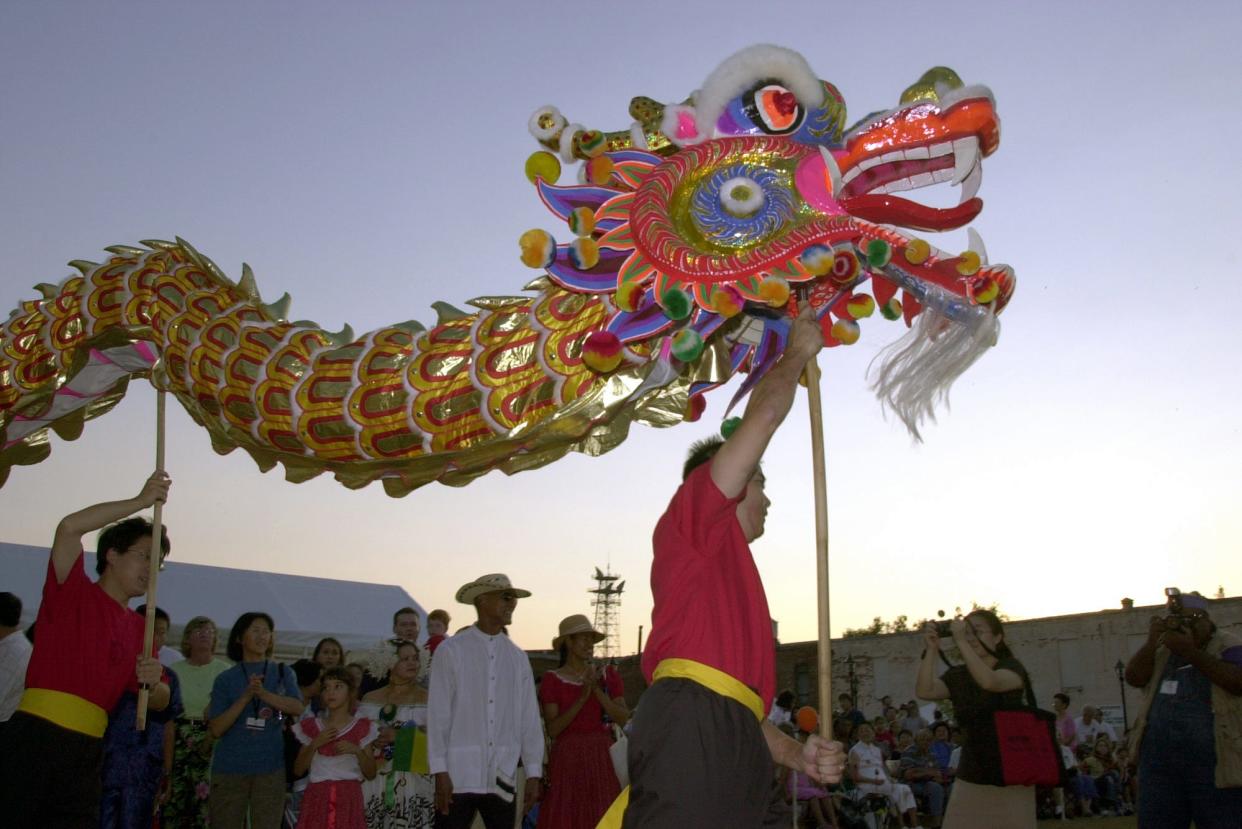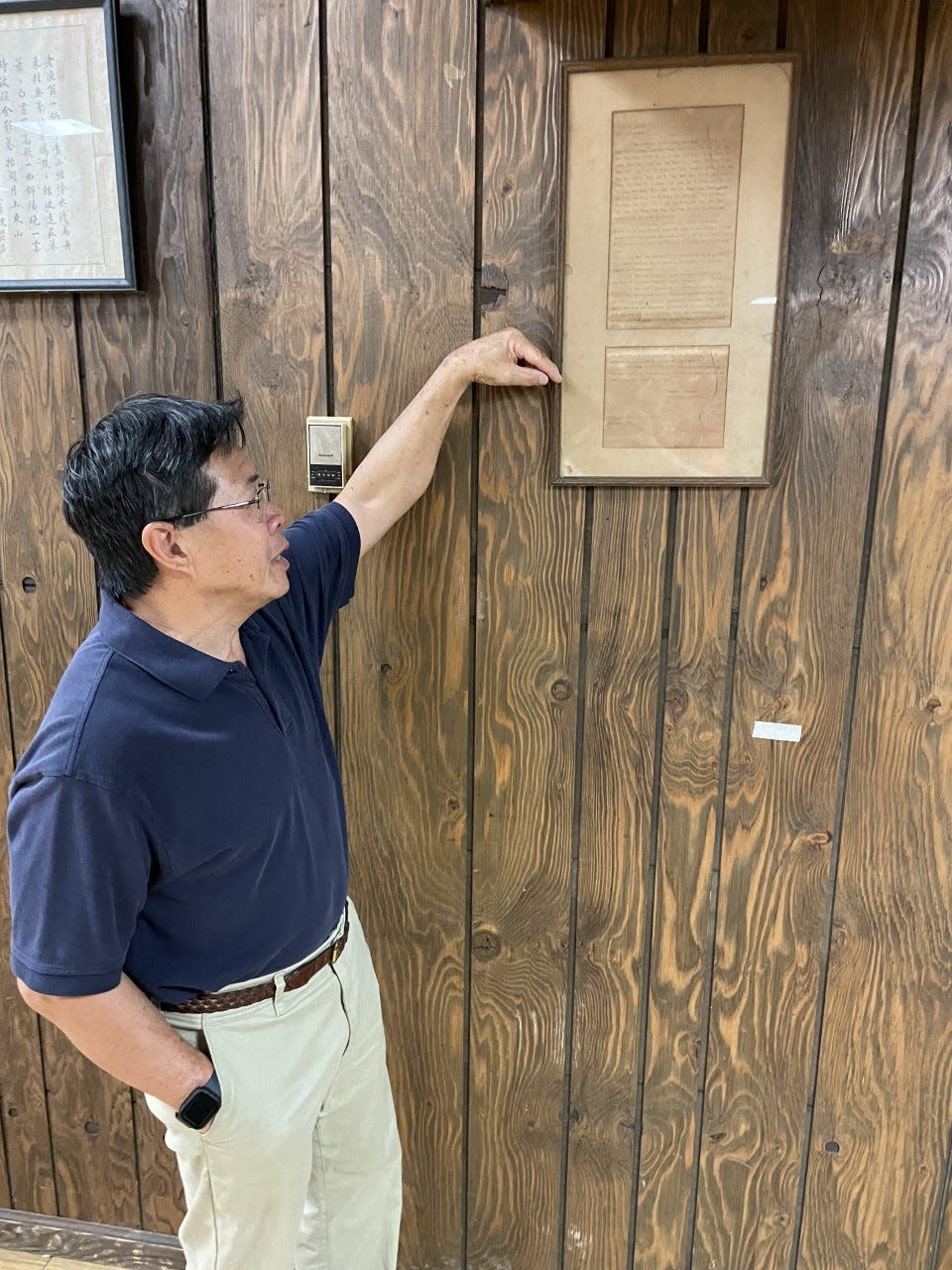State to honor Augusta group as Georgia's oldest Chinese organization

A cultural group in Augusta will be recognized by the Georgia Historical Society as the state’s oldest incorporated Chinese organization.
A new historical marker recognizing “The Augusta Chinese and the Chinese Consolidated Benevolent Association” will be dedicated at 11 a.m. Friday in front of the CCBA’s headquarters at 548 Walker St. Local Chinese immigrants founded the organization in 1920 and incorporated in 1927.
Augusta’s Chinese community is considered one of the oldest in the eastern United States.
“Over the ensuing decades, the Chinese population continued to grow, and Augusta had the largest Chinese population in the state until the 1960s, when immigration reopened and you had this flood of professionals moving to Atlanta,” said Gary Tom, the CCBA’s president.
Augusta Eats: New poké place bowls over customers on Washington Road
Augusta Eats: Chinese restaurant offers something old and something new to loyal diners
Most of the first Chinese immigrants who made Augusta their home arrived in late 1873 from San Francisco, retained by Augusta Canal contractors as laborers to enlarge sections of the waterway originally constructed in 1845.
A short editorial in the Nov. 14, 1873, Augusta Chronicle initially expressed optimism that an increase in Chinese labor could be an answer to reviving Southern rice plantations that never fully recovered from the Civil War.
Nationally, reception to cheap, and growing, Chinese labor was chillier. The federal Chinese Exclusion Act of 1882 barred Chinese from entering the United States, but the law granted exceptions to merchants. Soon, the immigrants who chose to stay in America established small businesses to earn income and enough money to send to China to bring over their relatives, officially to provide labor in the new stores.
By 1885, white Augusta merchants were asking city officials, unsuccessfully, to prohibit Chinese residents from obtaining business licenses. By the 1950s, Tom said, Augusta had more than 70 Chinese groceries at its height.
A local incident in November 1919 might have been one of the catalysts in forming the CCBA. A traveling fair rolled into town with an exhibit called “Underground Chinatown” that depicted Chinese as opium traffickers “enticing Americans to acquire the drug habit and as a menace to civilization of this country whereas the honesty and general uprightness of the Chinese in America is, we submit, most exemplary,” according to part of a public statement from prominent Chinese merchants, including Tom’s great-uncle, Sam Lee Jue.

Three days later, the fair’s operators closed the Chinatown exhibit. Two months later, in February 1920, the Chinese Consolidated Benevolent Association held its first meeting. In 1939, the CCBA moved into its present home after buying a church that once housed St. Matthew’s German Lutheran Church.
For decades the building has been the base for meetings, social gatherings and cultural outreach. Most area residents see group members perhaps most prominently during the city’s annual Arts in the Heart festival that features the food, dance, costumes and customs of other countries.
While the group is still active today, membership is declining. Today, Tom estimates about 150 people among 50 or 60 families belong to the CCBA.
“I grew up down here when I was a little boy,” Tom said, sitting near the CCBA’s original framed charter. When he grew up in Augusta in the 1950s, he was part of a core group of 30 to 40 children who regularly visited the CCBA for a host of activities. Today, he estimates there are just 10 to 15 children.
“I hate to say it, but we’re kind of a slowly dying organization,” Tom said. “Kids go to school, move away, get jobs and they don’t come back to Augusta. We’ve just got to get young blood.”
This article originally appeared on Augusta Chronicle: State plaque to honor Augusta Chinese organization as Georgia's oldest

